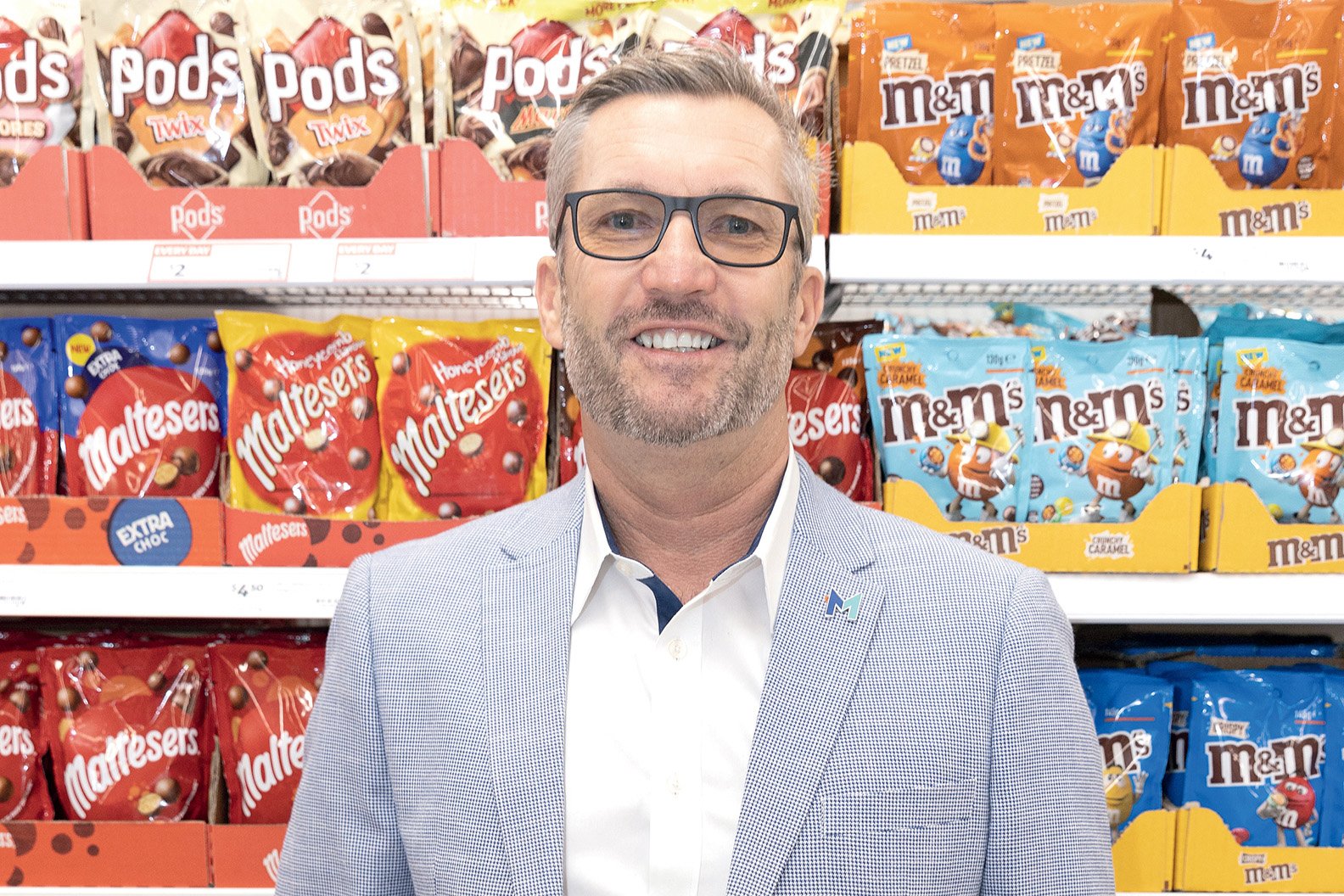Thousands of events happen throughout childhood and adolescence, yet only a few become a memory in adulthood. What’s interesting is that many of those earliest memories centre around “firsts” – the first bike ride with no training wheels, the first dance performance, the first sleepover and maybe even the first kiss.

Research shows that the retainment of early, happy memories lies in the power of extraordinary days and novel experiences. These experiences can also come in the form of food, which is something Mars Wrigley Australia knows quite well. It’s been making brands that create better moments for millions for more than a century.
“We can all remember when we had our first Mars bar or our first M&M’s,” says General Manager Andrew Leakey, who oversees the Australian division of the global company.
“It just lightens the mood. And right about now, we all need more of that.” During COVID-19, Mars Associates have made it a point to jump in and get involved with the local communities, doing what they can to make a difference.
“We’re not saving lives, but we are making people smile,” Andrew says. “We’re out there giving healthcare workers a chocolate bar at the end of the day, and it gives them a little smile, instantly transporting them back to when they had their first Snickers bar.”
To Andrew, it’s a great feeling. He’s been in the industry for 35 years and with Mars for 13 of them, and it never gets old. “I have the best job in the world,” he beams. And as he talks about the future, it suddenly comes as no surprise that kindness is a priority for him.
“It may sound a little odd, but I think people throughout Australia, and certainly in our business, have had a really tough time on many different levels, not just at work, but also at home. It’s been difficult,” he says.
“We need kind leaders. Now, that doesn’t mean I’m not going to hold people accountable. And it doesn’t mean I’m not going to be focused on getting results, but it does mean that my ethos is kindness, openness and visibility, so we can have a dialogue and people feel valued and have a deep sense of belonging.”
With a culture like that, Andrew says the business basically takes care of itself. “If people feel connected to an organisation, and they feel that the organisation cares, then they’re going to stay and thrive,” he says. “And if they stay and thrive, then the business gets a great result.”
Mars is definitely getting a great result. The family-owned business got its start in 1880 with two men in a kitchen and today, it’s the world’s leading manufacturer of chocolate, chewing gum, mints and fruity confections. It’s beloved by many for its core, iconic products like M&M’s, Snickers, Maltesers, Extra and Skittles.
If people feel connected to an organisation, and they feel that the organisation cares, then they’re going to stay and thrive. And if they stay and thrive, then the business gets a great result.
“Most of our sales come from our core products like peanut and milk chocolate M&M’s – the ones everybody has grown up with and loves,” Andrew says. “But when we go outside the core, that’s where we get innovative. Whether it’s M&M’s Crunchy Caramel or Pretzel, it’s just about bringing new innovations to the market and giving our consumers the very best experience.”
While Andrew says Mars is “obsessed” with the consumer, the world-famous confectionery company is equally passionate about the planet. In 2017, Mars launched its Sustainable in a Generation Plan, which road maps its green initiatives for years down the track.
By the end of 2025, Mars will be lowering its greenhouse emissions by 27 per cent, and by 2050, it will be further lowered by 67 per cent across the whole value chain.
“We want to make our products in the most efficient and sustainable way with the lowest possible impact,” Andrew says. “This year we transitioned all of our local operations to renewable electricity, offsetting emissions from our sites across Australia.
“It all goes back to our purpose. At Mars, we believe the world we want tomorrow starts with how we do business today. And I think every action needs to support that.”
Of course, that includes his own – for the past six months, Andrew has been working with various state and federal ministers on a task force to reignite food and beverage manufacturing all the way from agriculture to innovation, which has developed a road map to ensure the industry is future-proofed through upskilling, collaboration and investment.
“The food and beverage sector might not be as sexy as the tech industry, but it’s still really important. It’s the lifeblood of how we supply consumers and keep rural economies going,” he shares.
“And the government has realised this; that this massive industry in the multiple billions that we’re a part of is super important. We employ over a quarter of a million Australians across our industry. It’s vital to make sure that we maintain and grow our business in ways related to economic value as well as human value.”


